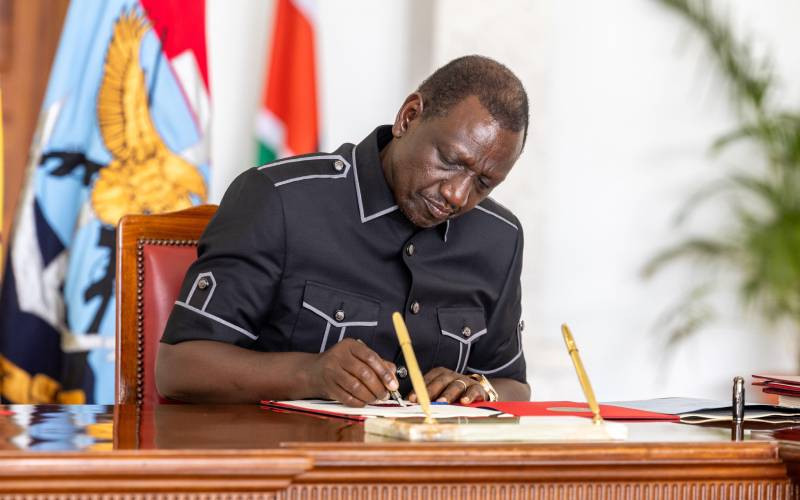Climate change and inadequate electricity coverage are two major challenges that have been haunting Africa for ages. But the continent possesses a weapon that can be used to slay the two challenges.
According to various speakers during the second week of the UN climate change conference (COP22), Africa has huge renewable energy potential that needs to be explored to power the continent and simultaneously help the African countries meet their commitments to cut greenhouse gas emissions as per the Paris agreement.
According to the president of the African Renewable Energy Initiative (AREI), Youba Soukouna, “Africa has potential to shift to 100% renewable energy.”
“We are looking to deliver 300 gigawatts of energy by 2030.” Youba said. European Union (EU) commissioner extoled AREI as the African vein for renewable energy in future and pledged to support the initiative.
So what are the benefits of renewable energy and what does Africa need to shift to 100% renewable energy potential according to the speakers at the COP22?
Benefits of renewable energy
Clean: “Renewable energy is green, clean energy with no pollution,” said REScoop representative. “Oil spill means pollution while solar spill means power,” a panelist added.
Safe climate: according to the president of Marshall Island Hilda Heine, “securing safe energy means securing safe climate for all and that is climate justice.”
President Hilda said that renewable energy will enable her country to reach the 1.50C target. “Reaching 1.50C is about what we do before 2020,” she added.
Affordable: Giving example of the largest solar power plant in Ouarzazate, Morocco, the Energy Minister of Morocco said that “the cost of electricity is now 6 times cheaper than 2009”. The Moroccan government is now planning to move to 500 megawatts in 2020 from the current 165 megawatts. Hilda Heine, the president of Marshall Island said “renewable energy has saved small countries like mine a lot of money.
Cost effective: The business community at the conference unanimously agreed that renewable energy is cost saving to businesses since it is cheaper and clean in the long run.
Renewable energy will lift the poor out of poverty due to cost effectiveness. “Role of energy in leapfrogging and lifting people out of poverty cannot be understated.” said the Swedish representative.
What Africa needs to attain the 100% energy potential?
Partnerships and collaborations: Collaborations and partnerships are important in adoption of renewable energy initiatives. Morocco was able to build its solar power plant through partnerships and collaborations.
Coherent policies: While speaking about the country’s largest solar energy project in Ouarzazate, Morocco’s minister for Energy stated categorically that “goal setting is not enough, coherent policies are.” Coherent policies provide clear guidelines for decisions and achievement of rational outcomes.
Stay informed. Subscribe to our newsletter
Capacity building: For Africa to fast track adoption and access to renewable energy, the continent must be able to build its own technologies. This requires development of knowledge and skills in so far as building and application of appropriate technology is concerned. “We’d like to build our own technologies.”
Investments: investments in the renewable energy sector (solar, geothermal, wind) will enable Africa to explore renewable energy potential the continent is considered lucky to have. Representatives of African countries urged investors to consider investing in the sectors.
New investments must also be 100% renewable today. “It’s a bold move but rewarding!” said Stephen Howard, a representative of business community.
Will of individual countries: The president of Africa Renewable Energy Initiative said that “adoption of renewable energy in Africa will be as good as the individual countries buying into the idea.” He urged individual countries to create policies and enabling environment for adoption of renewable energy.
The business community said that shifting to renewable energy is not easy due to skepticism but “people have to make bold move collectively.”
“If we believe that moving away from fossil fuels to low carbon future can happen sooner it will happen sooner.” Rachel Kyte, Special Representative of the Secretary-General and Chief Executive Officer, United Nations - Sustainable Energy for All.
 The Standard Group Plc is a
multi-media organization with investments in media platforms spanning newspaper
print operations, television, radio broadcasting, digital and online services. The
Standard Group is recognized as a leading multi-media house in Kenya with a key
influence in matters of national and international interest.
The Standard Group Plc is a
multi-media organization with investments in media platforms spanning newspaper
print operations, television, radio broadcasting, digital and online services. The
Standard Group is recognized as a leading multi-media house in Kenya with a key
influence in matters of national and international interest.
 The Standard Group Plc is a
multi-media organization with investments in media platforms spanning newspaper
print operations, television, radio broadcasting, digital and online services. The
Standard Group is recognized as a leading multi-media house in Kenya with a key
influence in matters of national and international interest.
The Standard Group Plc is a
multi-media organization with investments in media platforms spanning newspaper
print operations, television, radio broadcasting, digital and online services. The
Standard Group is recognized as a leading multi-media house in Kenya with a key
influence in matters of national and international interest.







